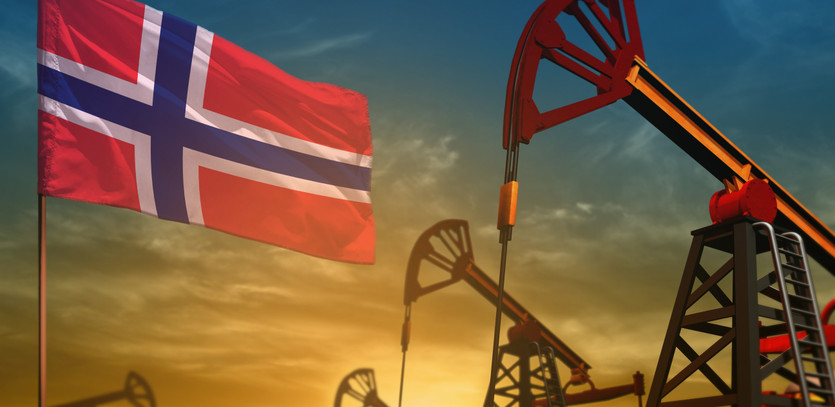Norway's Unique Economic Tapestry: More than Just Breathtaking Sceneries
While many associate Norway with its sprawling fjords, cascading waterfalls, and ethereal northern lights, this nation, nestled in the northernmost part of Europe, holds robust economic credentials that are equally compelling. Historically rooted in its industrious past, Norway has been a beacon of economic resilience and prosperity, continually setting benchmarks and surpassing its European neighbors. Its performance has been especially commendable during global recessions and economic challenges, making it a focus for many keen investors.
A Deeper Exploration into Norway's Investment Landscape: Rewards and Challenges Alike
Norway is a mosaic of economic opportunities, presenting a rich tableau of sectors, industries, and commercial ventures. Every investment landscape, however, has its peaks and valleys. While Norway promises rewarding investment prospects, it is intertwined with challenges that investors should be well-aware of.
Key Highlights:
- Central to Norway's robust economic fabric is its North Sea oil wealth, with the government playing a pivotal role in regulating and overseeing this lucrative industry.
- For those residing in the U.S., a prime entry point into the Norwegian market is through the American Depository Receipts of Equinor ASA (NYSE: EQNR), an oil and gas giant with a significant presence.
- Investors keen on diversifying their portfolios beyond individual stocks can look towards the Norwegian exchange-traded funds. An exemplar in this category is the Global X FTSE Nordic Region ETF (NYSE: GXF).
- A word of caution for the enthusiastic investor: Norway's deep-seated reliance on the oil industry brings with it an inherent volatility. Any global oil market disruption can cascade and affect the Norwegian economy at multiple levels.
Deciphering Norway's Oil-Dependent Economic Framework
The North Sea oil reserves have been a cornerstone of Norway's economic success, not just fueling industries but also underpinning its extensive welfare systems and fostering above-average economic growth. A distinguishing feature of Norway's petroleum endeavors is its largely government-operated model. This dominance, however beneficial in the short term, has over the decades stifled the growth potential of other industries. Such an overwhelming dependence on a single resource has contributed to Norway becoming one of the world's most expensive nations in terms of living standards. The looming threat of global petroleum market fluctuations remains a constant point of consideration for potential investors.
Equinor, Norwegian ADRs, and Their Global Appeal
For investors based in the U.S., Norwegian American Depository Receipts (ADRs) offer a smooth onramp to dive into the foreign investment waters. These are essentially stocks of foreign corporations repackaged for the U.S. exchanges, making them accessible to American investors. This transition is facilitated by U.S. banks, which acquire shares in large numbers, bundle them, and subsequently list them on renowned U.S. platforms. With a price range oscillating between $10 and $100, they cater to a wide array of investor categories.
In the Norwegian ADR ecosystem, Equinor ASA (NYSE:EQNR) emerges as a titan. This integrated oil and gas conglomerate has spread its tentacles across 30 countries, amassing reserves that are both impressive and formidable. As of February 2021, its soaring market capitalization of $58 billion has firmly established it as a frontrunner in the global oil and gas sector.
The Fascinating Universe of Norwegian ETFs
Norwegian Exchange-traded funds (ETFs) have emerged as the modern alchemy for investors globally. These instruments aren't just a reflection of the broader market sentiment, but they also encapsulate Norway's vibrant economic spirit. Offering diversification, these funds allow investors to navigate the complex investment landscapes of Norway without having to tread on every individual stepping stone.
Why are ETFs gaining popularity?
- Diversification: Unlike individual stocks that expose investors to the volatilities of a single company, ETFs span across various industries, reducing company-specific risks.
- Liquidity: ETFs trade on major exchanges akin to regular stocks, providing ease of entry and exit.
- Management: While actively managed funds often come with heftier fees, ETFs tend to be more passive, tracking an index and, as a result, often come with lower management fees.
Spotlight on a Star: The Global X FTSE Nordic Region ETF (NYSE: GXF) In the expansive world of ETFs, the Global X FTSE Nordic Region ETF (NYSE: GXF) stands out not just as a participant but as a leader. Here's why:
- Broad Spectrum: It offers a panoramic view of Norway's economic muscle by tracking the FTSE Norway 30 Index, an index that embodies the performance of Norway's leading companies.
- Dominant Sectors: The ETF predominantly focuses on the heavyweights in the oil and gas industries. However, it also provides exposure to other sectors, offering a balanced portfolio.
- Key Holdings:
- Novo Nordisk A/S-B: A giant in the pharmaceutical world, its significant contribution to the ETF's assets underlines its dominance in the market.
- Vesta Wind Systems A/S: A testament to Norway's foray into sustainable energy solutions.
- Orsted A/S: Another key player in the green energy sector, reaffirming the country's commitment to eco-friendly initiatives.
- Asset Allocation: As of February 10, 2021, Novo Nordisk alone constituted a colossal 14.15% of the ETF's total assets, making it a cornerstone of the fund's portfolio.
For investors, ETFs, especially the likes of Global X FTSE Nordic Region ETF, serve as a golden gateway into Norway's multifaceted economy. With their inherent structure, they offer both the thrill of investment and the assurance of diversification. Yet, as always, potential investors should pair their enthusiasm with due diligence, ensuring their forays into the Norwegian market are well-informed and well-timed.
Treading with Caution: Potential Hurdles on the Norwegian Investment Path
The allure of Norway's robust economy, no doubt, makes it an enticing arena for international investors. However, a prudent investor should be wary of its significant exposure to the oil and gas industry. The ripple effects of a downturn in global oil dynamics can quickly reverberate through Norway's financial corridors. Balancing optimism with caution will be key to navigating this intriguing economic landscape.





